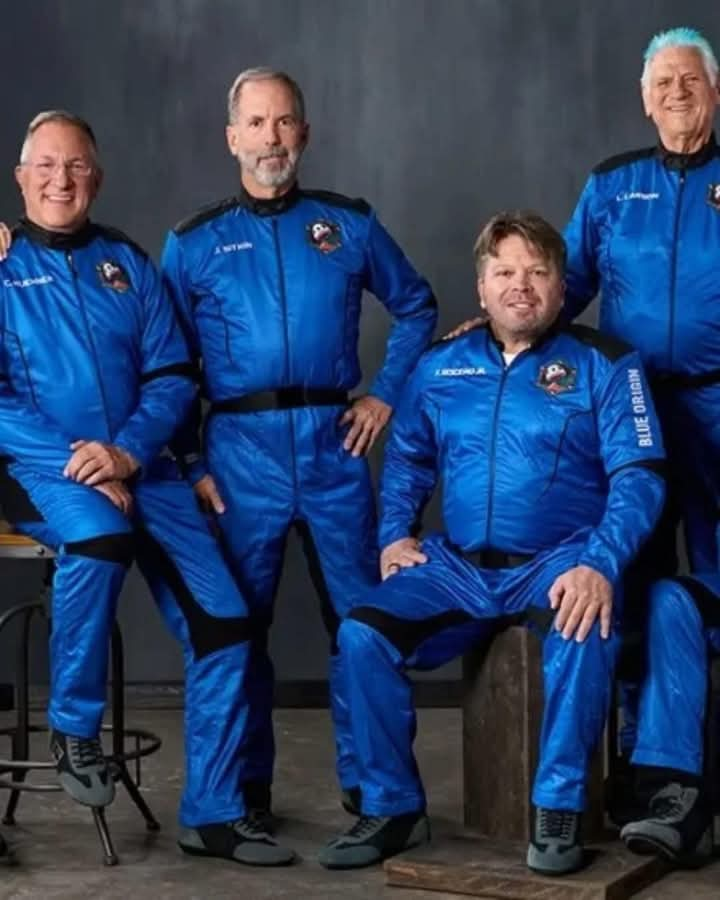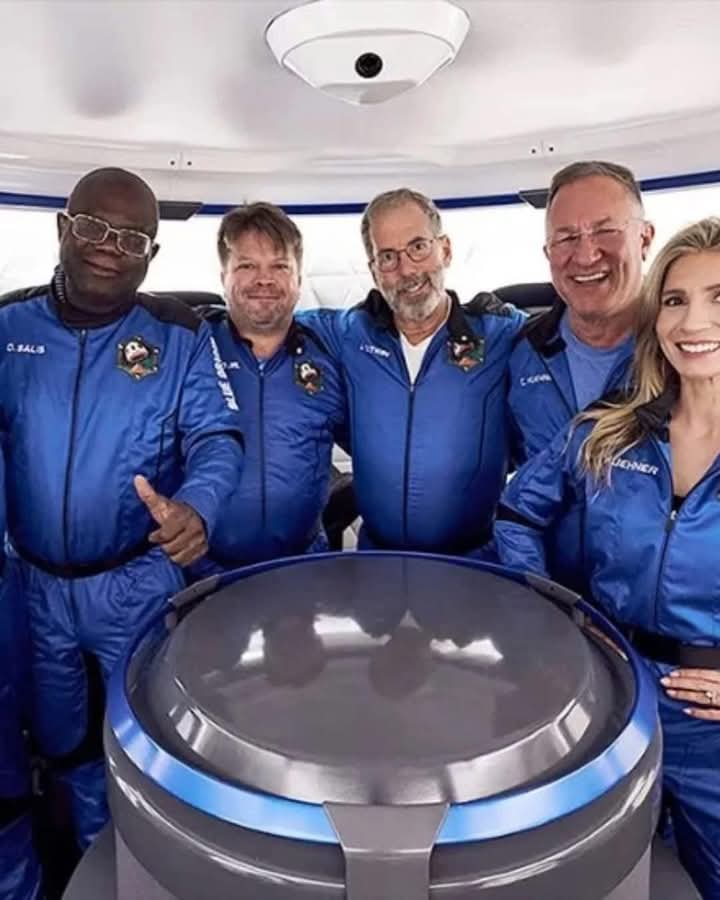By Sola Ojewusi
On June 29, 2025, the heavens opened their gates to history. As Blue Origin’s New Shepard NS-33 rocket roared into the skies from the arid plains of West Texas, aboard it sat a man whose name will forever be etched in the annals of African greatness: Chief Owolabi Salis — the first Nigerian, the first West African, and a proud son of the Yorùba race to travel into space.
For centuries, humanity gazed at the stars and dreamt. But on that fateful day, the dream of a nation and a continent found embodiment in one man’s courage, brilliance, and unyielding determination. When the New Shepard spacecraft pierced the invisible barrier known as the Kármán line, 100 kilometers above sea level — the official boundary of space — Salis shattered not only the bounds of Earth’s atmosphere but also the glass ceiling that had kept Nigerians and West Africans earthbound in the chronicles of space exploration.
A Journey Rooted in Heritage, Fueled by Vision
Chief Owolabi Salis is not just an astronaut; he is a custodian of a rich cultural legacy. Born of the storied Yorùba people, he carries within him the wisdom of ancestors who, in their time, mapped the skies with naked eyes and named the stars in lyrical proverbs. It is fitting that this son of Africa, who speaks the language of Odù Ifá and understands the rhythm of the talking drum, is the one to plant his people’s flag — if not yet on a planetary body — at least in the vast domain of the cosmos.


Salis’ achievement is not accidental. It is the result of decades of intellectual rigor, technical prowess, and global collaboration. Trained as a lawyer and an engineer, and known across Nigeria as a philanthropist and patriot, Salis pursued the dream of space not as an individual quest but as a mission for the dignity of a people too often overlooked in the global race for scientific achievement.
Nigeria and Africa: A New Dawn
With Salis’ triumph, Nigeria joins the rarefied league of nations whose citizens have seen Earth from above — a fragile blue orb suspended in the void. His voyage carries profound symbolism: it is proof that with vision, investment, and determination, Africans can and will stand shoulder to shoulder with the rest of humanity in the great adventure of space.
His flight on New Shepard NS-33 lasted only minutes — but those minutes marked the culmination of centuries of dreams. For Nigeria’s youth, for Africa’s innovators, for the children gazing up at the night sky in Lagos, Accra, Dakar, and beyond, Salis’ journey is a clarion call: no frontier is beyond reach.
The Man, The Mission, The Message
As his capsule drifted back to Earth under its trio of parachutes, Chief Owolabi Salis carried back more than just the memory of weightlessness and the breathtaking view of continents and clouds. He brought back a message — that Nigeria’s time is now. That West Africa’s contributions to humanity’s future will no longer be limited to its soil, its resources, or its culture — but will stretch into the infinite.
“I looked down at Earth, and I saw home,” Salis said, moments after emerging from the capsule to the cheers of onlookers and mission personnel. “I saw Africa, I saw Nigeria — beautiful, united, limitless. May this be the beginning of many journeys beyond the sky for our people.”
A Legacy for the Ages
Chief Owolabi Salis’ historic flight is already inspiring conversations in classrooms, boardrooms, and policy circles. It has rekindled calls for greater investment in Nigeria’s space agency, NASRDA, and for a new generation of scientists, engineers, and dreamers to be nurtured. In every sense, he has become a symbol of what is possible when a nation dares to dream big and act boldly.
As the first Nigerian and first West African in space, Chief Salis has given Africa a new hero — not of conquest or war, but of science, peace, and progress. His name will forever be spoken alongside those of Yuri Gagarin, Neil Armstrong, and Mae Jemison — as a pioneer who crossed the final frontier for his people.
And somewhere in the night sky, a star shines a little brighter — for it now reflects the gaze of a man who once dreamed beneath it, and rose to meet it.

